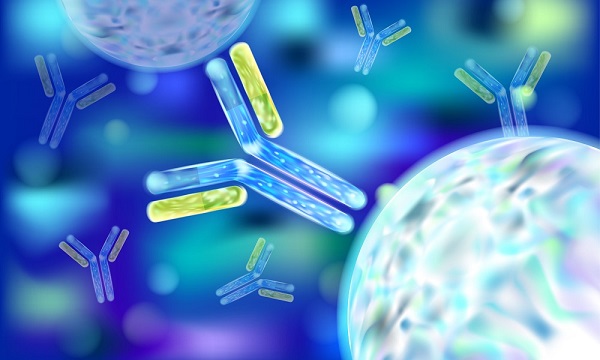Today is the International Day of Immunology Research. We wanted to celebrate by asking one of our wonderful post-docs Ben Wiggins why immunology research is so important, especially right now in the current situation.

For those of us who study the inner workings of the immune system, our work takes us on a journey throughout the human body. From stopping infections in the lungs, to repairing damage in the liver; to preventing cancer in the skin or keeping the resident gut bacteria in check in the colon. Immunology really is a multidisciplinary science at the centre of much translational research. With the current COVID-19 crisis affecting us all, research into immunology is as important as ever.
The benefits of research into the immune system
The immune system is the ultimate personalised army, protecting us from any bacterial or viral invaders, but also in recognising and destroying potentially cancerous cells. Like any system though, the immune system can malfunction and incorrectly identify our own bodies, or harmless food or every-day substances as targets, leading to autoimmune diseases and allergy respectively. Immune cells also have less appreciated roles in maintaining health, such as controlling weight gain in obesity, or influencing the outcome of heart disease. It is a fascinatingly complex machine composed of dozens of cell types, communicating through hundreds of different messenger molecules, all intimately affected by a myriad of external factors including, stress, diet, gender, age, time of day, hours of sunlight, and even psychology1. Researchers all over the world dedicate their careers to understanding these interactions, with much success.
Vaccines are one of the greatest public health advancements in history, with 26 separate diseases preventable by vaccination that combined are estimated to prevent over 2 million premature deaths per year2. Other examples come from novel ‘CAR-T’ treatments for advanced cancers where key immune soldiers called T cells are removed from the patient and given better weapons to specifically recognise the tumour (the weapons here being the so-called chimeric antigen receptor – CAR)3. What about in autoimmunity? Thanks to the understanding of the intricacies of these over-zealous immune responses, scientists have been able to develop effective antibody therapies, also known as ‘biologics’, that target key immune cell messenger molecules in conditions like Rheumatoid arthritis and Crohn’s disease. These are just some examples amongst the plethora of exciting advances that immunologists are at the forefront of every single day.
Of course, understanding the immune response to SARS-CoV-2, the virus that causes COVID-19, is a key goal of the scientific community and governments alike right now. Being such a new virus, many questions remain. What constitutes an effective immune response? What cell types are involved? How can we boost the immune responses in elderly and vulnerable patients? How long does immunity to SARS-CoV-2 last? And importantly, how can we generate the best possible vaccine? All these questions are being addressed at an unprecedented pace by immunologists all over the world, and to them we are extremely grateful.

Image credit: Massachusetts General Hospital
Immunology research at the LMS
The LMS is full of experts working in fields such as metabolism, genetics and cell signalling, and so provides an excellent collaborative environment to study the immune system that is so interconnected in all these areas. In the Inflammation & Obesity lab, we combine research into the immune system and energy metabolism. Specifically, we work on a protein called the aryl hydrocarbon receptor (AHR) that is able to bind and respond to dietary and bacterial metabolites in tissues. My project asks what the consequences of integrating such a signalling system into the immune response are. Data from this project could help us to understand how seemingly different components of human health like what we eat, and the make-up of our healthy gut bacteria influence our immune systems.
Other exciting research on immunity at the LMS includes the work of the Cell Proliferation lab on ageing in the immune system, and the Lymphocyte Development working on the molecular mechanisms of immune cell development.
Recognising immunologists
Understanding how the immune system works in health and disease is no mean feat, but only through combined action of immunologists worldwide will we get closer to this goal. Increasingly, this will involve collaborations with experts throughout the physical sciences in order to get both a zoomed out, and zoomed in picture of this immune cell network that protects us all. Studying the immune response will be crucial to get us through these unprecedented times as fast and as efficiently as possible, as well as setting us up well for meeting future challenges. The hard work of the community has brought us great tools for improving global health, and I, for one, am excited at the thought of what these tools will look like in the near future.
If interested in learning more about the immune system, there are these excellent resources put together by the British Society for Immunology, here: https://www.immunology.org/public-information. You can also follow Ben on Twitter here.
References:
- Prof Daniel Davis, The Beautiful Cure : Harnessing Your Body’s Natural Defences, Vintage Publishing, London, 2018, ISBN13: 9781847923745
- British Society for Immunology: Protecting the world, Celebrate Vaccines report 2020: https://www.immunology.org/sites/default/files/BSI_Celebrate_vaccines_report_2020_FINAL.pdf
- Cancer Research UK: https://www.cancerresearchuk.org/about-cancer/cancer-in-general/treatment/immunotherapy/types/CAR-T-cell-therapy
